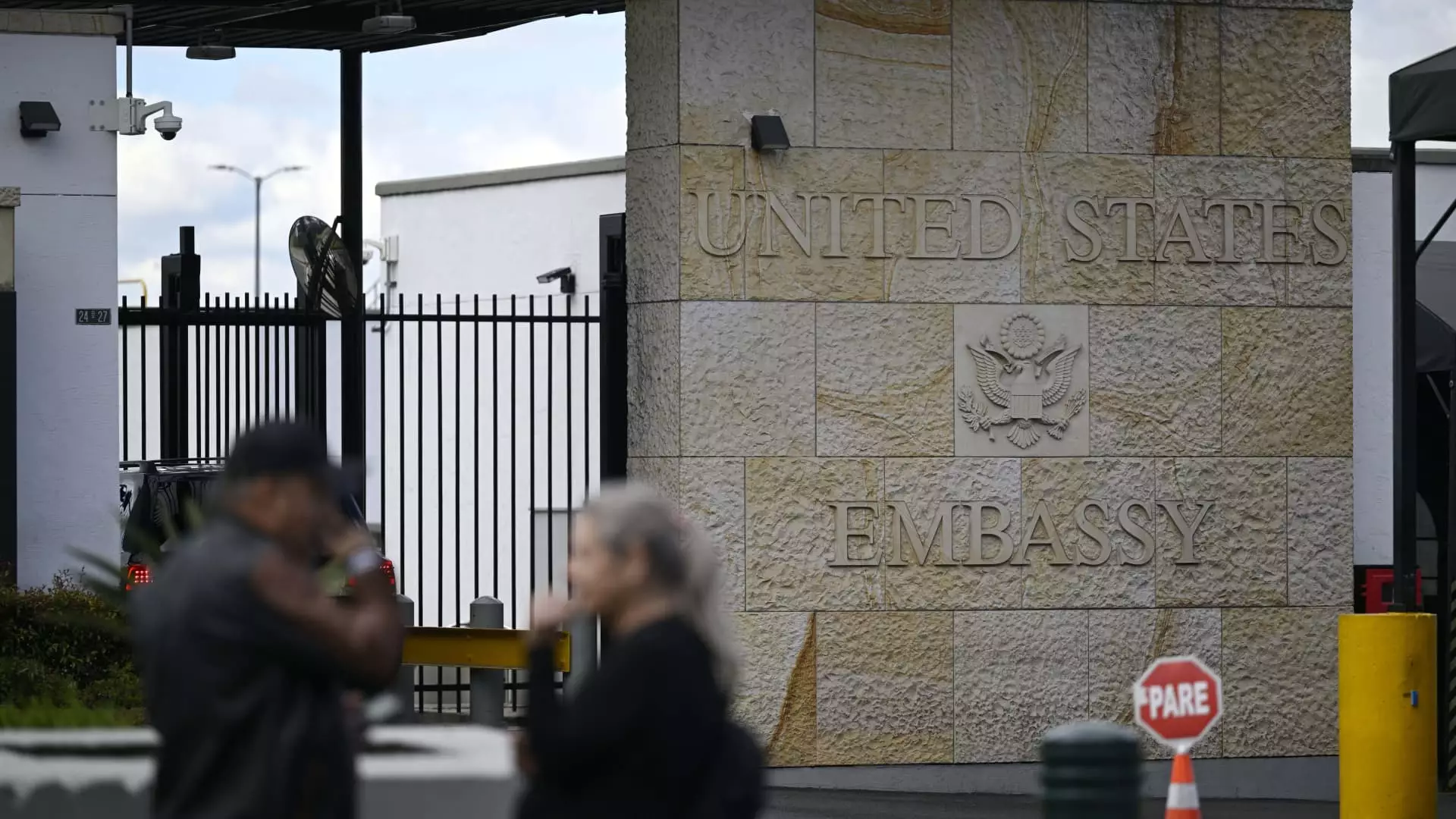In a significant move that reflects the priorities of his administration, President Donald Trump is actively seeking to revamp the U.S. diplomatic corps by implementing substantial staffing cuts at U.S. embassies across the globe. Reports indicate that embassies have been directed to prepare for reductions of both American personnel and locally employed staff, suggesting a strategic realignment towards a more streamlined diplomatic approach. The ramifications of this initiative are likely to echo throughout international relations, raising questions about the potential impacts on diplomacy, foreign aid, and the overall efficiency of U.S. representation in global matters.
According to multiple sources, U.S. embassies have been tasked with evaluating staffing levels, with a significant 10% reduction recommended for both American diplomats and local hires. The urgency of this situation is underscored by the impending deadline for embassies to submit their workforce assessments to the State Department, which will subsequently dictate the course of action. Traditionally, U.S. embassies employ a diverse mix of diplomats and staff where a majority are local hires, emphasizing the importance of cultural and contextual understanding in diplomatic operations.
Contextualizing the Cuts: A Closer Look at the Administration’s Motives
The stated intent behind these cuts appears to be an effort to mold the U.S. diplomatic structure to match a prescriptive foreign policy agenda that champions an “America First” doctrine. This directive aligns with Trump’s previous statements and executive orders aimed at ensuring that U.S. diplomatic efforts reflect his administration’s political vision, thus engendering concerns regarding the future of U.S. diplomacy. The implications of reducing staff at embassies cannot be understated; a diminished workforce may limit the capacity for nuanced engagement between the U.S. and foreign entities, potentially jeopardizing long-established relationships.
In conjunction with the staffing cuts, the administration’s broader plan encompasses an extensive overhaul of the foreign service itself. Trump’s executive order to Secretary of State Marco Rubio amplifies this vision, with a particular emphasis on the need for loyal personnel who can execute the president’s foreign policy without dissent. This backdrop raises provocative questions: What happens to the vital principles of diplomacy when loyalty becomes prioritized over expertise? Efforts to enforce a stringent alignment with political ethos, as the executive order proposes, could compromise the objectivity required for successful foreign engagement.
Consequences for U.S. Humanitarian Efforts Abroad
As part of this extensive reshaping of U.S. foreign relations, the administration has also undertaken recent layoffs targeting contractors at the State Department’s Bureau of Democracy, Human Rights, and Labor. These cuts seem to foreshadow potentially deeper reductions across other bureaus, translating into a narrowing focus on humanitarian efforts that have traditionally been a staple of U.S. diplomacy. The termination of personnel involved in democracy and human rights raises alarms among advocates who view such issues as essential to the foundation of U.S. foreign policy values.
Trump’s policies to defund agencies like the U.S. Agency for International Development (USAID) signal a significant departure from previous administrations, which embraced coordinated foreign aid as a tool for global leadership. This is a troubling precedent as it carries consequences for vulnerable populations that rely on U.S. assistance. Ultimately, the vision of facilitating a responsive and ethical foreign policy could become increasingly fragmented in the absence of committed personnel dedicated to humanitarian principles.
While President Trump’s efforts to streamline the operation of U.S. embassies and his commitment to an “America First” approach might be perceived as necessary reforms by some, they present grave challenges for the landscape of U.S. diplomacy. The implications of staffing reductions extend beyond mere numbers; they encompass the quality of international relations and America’s capability to effectively project its values and influence on a global scale. The delicate balance between political allegiance and diplomatic competency will continually shape the effectiveness of U.S. foreign policy in the years to come, and the consequences of these changes may reverberate beyond the Trump administration, impacting future leaders and global partnerships for generations.


Leave a Reply